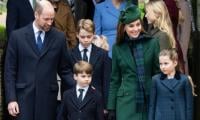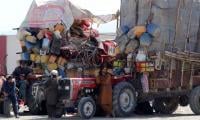ISLAMABAD: Myanmar’s military seized power in a bloodless coup on Monday, detaining democratically elected leader Aung San Suu Kyi as it imposed a one-year state of emergency.
The intervention ended a decade of civilian rule in Myanmar, with the military justifying its power grab by alleging fraud in the November elections that Suu Kyi’s National League for Democracy (NLD) party won in a landslide.
The coup sparked global condemnation, with the United States leading calls for democracy to be immediately restored, international media reported. Suu Kyi and President Win Myint were detained in the capital Naypyidaw before dawn, party spokesman Myo Nyunt told AFP, just hours before parliament was meant to reconvene for the first time since the elections. The military sealed off roads around the capital with armed troops, trucks and armoured personnel carriers. Military helicopters flew across the city. The military then declared, via its own television channel, a one-year state of emergency and announced that former general Myint Swe would be acting president for the next year.
It alleged "huge irregularities" in the November polls that the election commission had failed to address. "As the situation must be resolved according to the law, a state of emergency is declared," the announcement said.
The army later pledged to hold fresh elections after the year-long state of emergency. "We will perform real multi-party democracy... with complete balance and fairness," a statement on the army´s official web page said.
Suu Kyi issued a pre-emptive statement ahead of her detention calling on people "not to accept a coup", according to a post on the official web page of the her party´s chairperson. By evening, the military announced that pandemic prevention measures will be "effectively carried out with momentum" -- a hint that it would bolster the COVID-19 restrictions that currently blanket parts of the country.
The military moved quickly to stifle dissent, severely restricting the internet and mobile phone communications across the country. In Yangon, the former capital that remains Myanmar´s commercial hub, troops seized the city hall just ahead of the announcement, according to AFP journalist. Several trucks in Yangon carrying army supporters, with Myanmar flags and blaring nationalist songs, and some NLD members reported that security forces had ordered them to stay at home.
Elsewhere, the chief minister of Karen state and several other regional ministers were also held, party sources told AFP. However, the military did not deploy masses of troops onto Yangon’s streets.
Washington was swift to react to the news. "The United States opposes any attempt to alter the outcome of recent elections or impede Myanmar´s democratic transition, and will take action against those responsible if these steps are not reversed," White House spokeswoman Jen Psaki said in a statement.
UN Secretary General Antonio Guterres, the European Union, Britain and Australia were among others to condemn the coup. China declined to criticise anyone, instead calling for all sides to "resolve differences".
Suu Kyi’s previous opposition to the military earned her the Nobel peace prize. But her international image was shredded during her time in power as she defended the military-backed crackdown in 2017 against the country´s Muslim Rohingya community.
About 750,000 Rohingyas were forced to flee into neighbouring Bangladesh during the campaign, which UN investigators said amounted to genocide. In recent years, Suu Kyi, once celebrated as an international champion of human rights for her campaign of conscience against the junta while under house arrest, emerged as one of the military’s biggest public defenders. Despite a mountain of evidence against the military, she has publicly rejected accusations that the security forces waged a genocidal campaign against the Rohingya.
But with her national popularity enduring, and her party receiving another electoral mandate, the generals began visibly losing patience with the facade of civilian rule that they had designed.
Last week, an army spokesman refused to rule out the possibility of a coup, and General Min Aung Hlaing said that the Constitution could be scrapped if the law was broken. Armoured vehicles appeared on the streets of two cities, spooking residents unused to seeing such firepower cruising through urban centres.
In 2015, the National League for Democracy again secured a landslide electoral victory. This time, the military honoured the results. Even though Suu Kyi had vowed to tackle the country’s enduring ethnic conflicts when she emerged from house arrest in 2010, violence has intensified since then. Ethnic armies are engaged in open warfare with the Myanmar military in the country’s vast periphery, as elites fight for control over natural resources. Civilians are again caught in the crossfire.
And rather than holding the Myanmar military to account for its offensives, Suu Kyi, the daughter of the assassinated founder of the country’s modern army, has defended its soldiers. She even argued in their defence at The Hague, where Myanmar, a Buddhist majority nation, has been accused in an international court of genocide against Rohingya Muslims.
Meanwhile, Pakistan Foreign Office spokesman Zahid Hafeez Chaudhri said “we are closely following the developments in Myanmar”. “We hope that all parties involved will exercise restraint to uphold the rule of law, engage constructively, and work towards a peaceful outcome,” Zahid Hafeez Chaudhri said.
Images showed chopper´s landing skids protruding from river beside Manhattan´s West Side Highway
Senator clarified that Khan receives list of proposed visitors and retains sole authority to approve or reject meetings
Police officials said mother of missing brothers had been called to record her statement
Currently, four accused including Niaz Badami have been arrested
Even railway stations could be considered as part of Defence of Pakistan, says Justice Mandokhail
MWM leader asserted that court orders were being ignored and judiciary held no value







